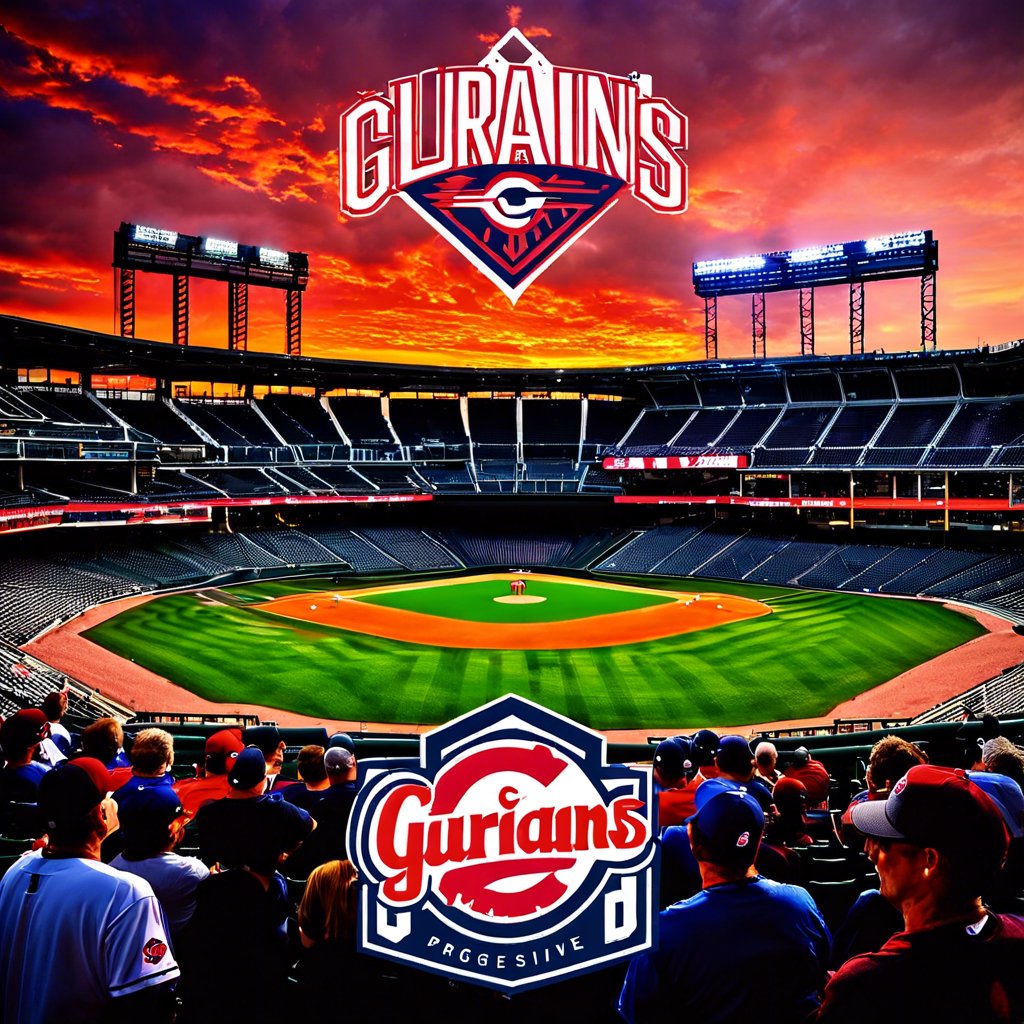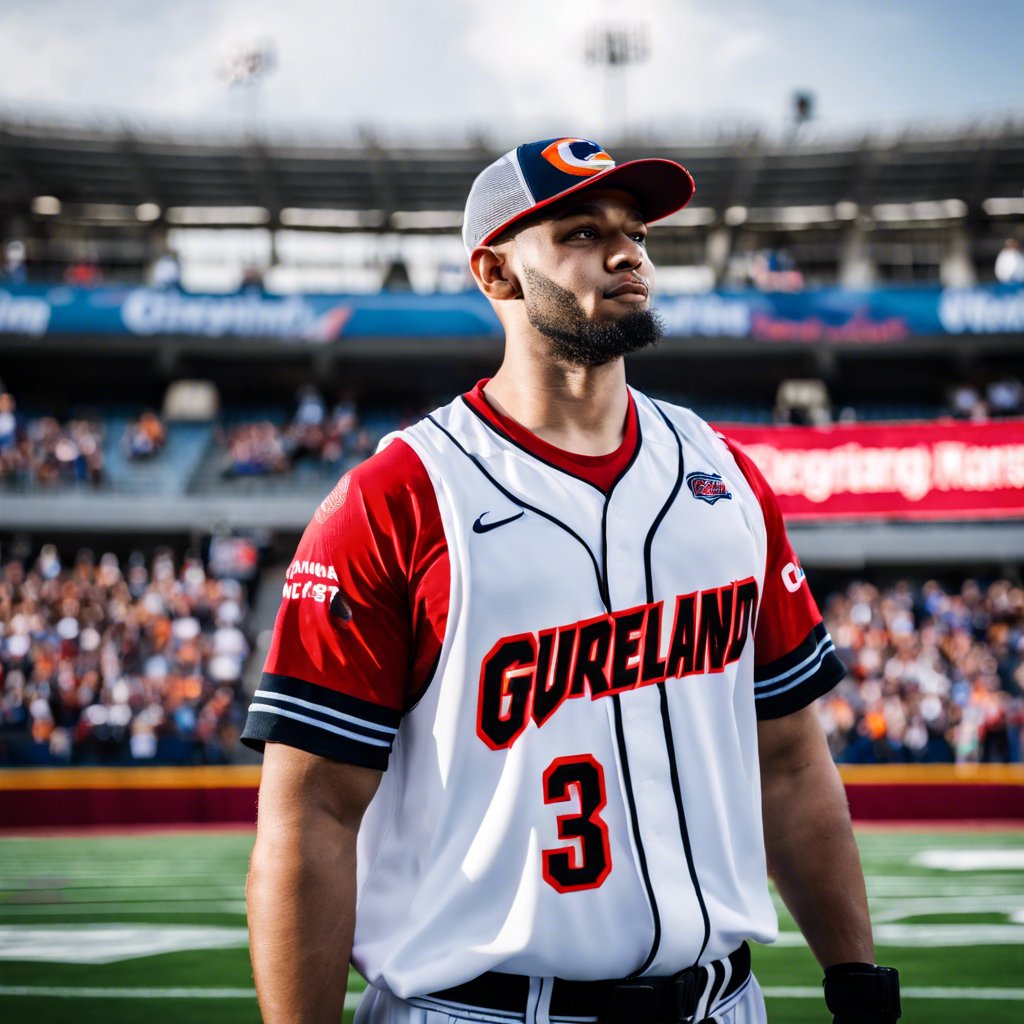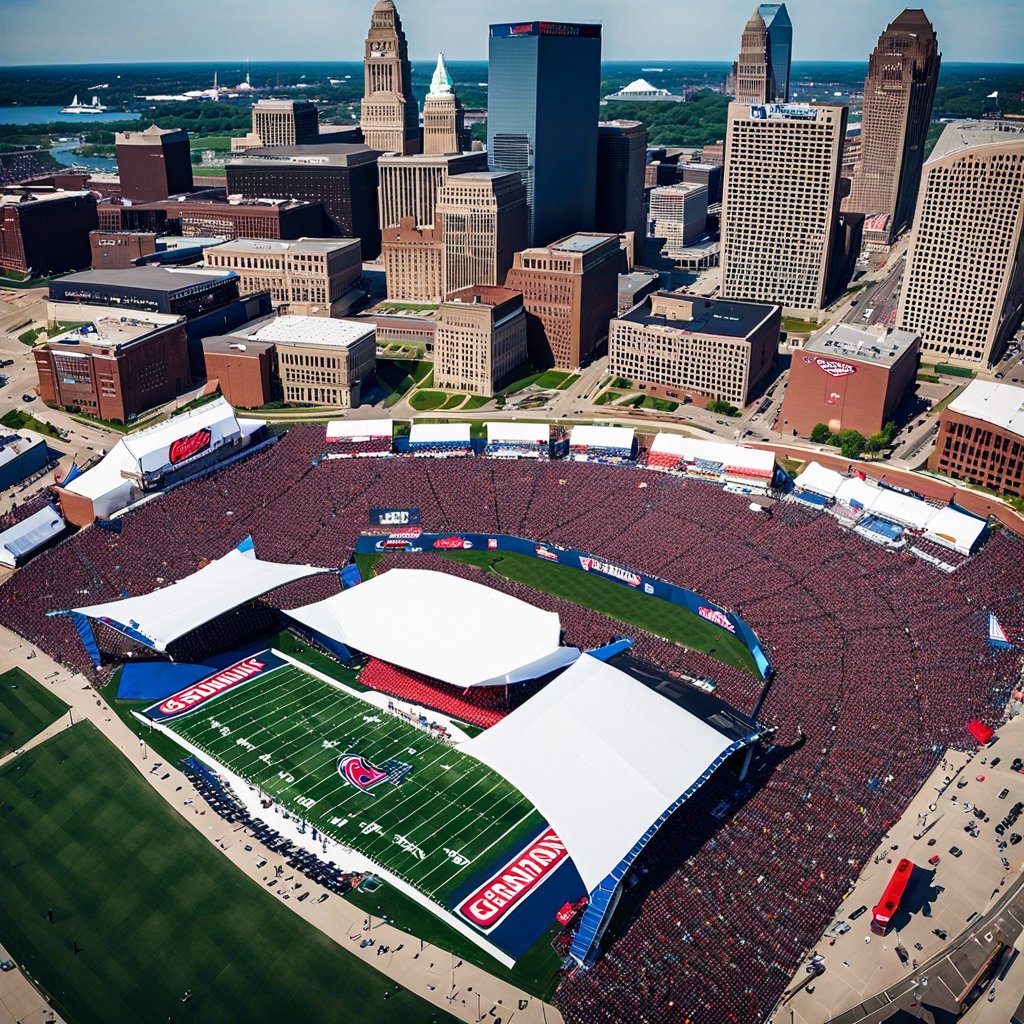CLEVELAND — A Day in the Life of the Guardians
Four hours before the first pitch, José Ramírez, the heart and soul of the franchise, is belting out Daft Punk’s catchy hit, “One More Time,” in a hilariously off-key manner. He deliberately twists the simple refrain, leaning back in his black leather chair located in his corner locker. As Josh Naylor strolls past the center of the room where a JBL PartyBox speaker is placed, he triggers a DJ sound effect, prompting at least one teammate to throw a fist pump as if he’s dancing on a lively Jersey Shore nightclub floor.
Emmanuel Clase is engaged in a FaceTime call with his family back home in rural Río San Juan, D.R., the sounds of clucking chickens echoing through the clubhouse, barely audible over Ramírez’s off-key serenade. One more time!
Tyler Freeman and David Fry are engrossed in a heated battle on a Mario Kart arcade machine, an exhilarating undercard match before Ramírez, known for his jaw-dropping skills at navigating Bowser’s hefty frame around obstacles, begins to challenge teammates for more money than they’ve ever seen in their professional careers. One more time!
Austin Hedges strides into the room sporting a self-hemmed red crop top that exposes his bellybutton, along with a hint of the shag carpet that adorns his chest, while clutching a leather-bound notebook filled with scouting reports and other vital insights. One more time!
Then, just like that, the atmosphere shifts — the vibrant bustle comes to a halt. The room falls silent, save for the speaker now transitioning through a medley of Bob Marley hits.
The energy dissipates. The players vanish. Catchers, pitchers, coaches, and analysts congregate in a room across the hall to dissect the hitting patterns of the opposing team. Hedges, Fry, and Bo Naylor, the club’s catching trio, share the insights they’ve diligently recorded in their notebooks. Meanwhile, the pitchers head out to the left-field grass for a catch session, while the hitters make their way to the cages to review video footage and take their initial swings.
Manager Stephen Vogt, newly appointed at the helm, fulfills a slate of media obligations, flashing just enough charm to remind reporters why he was a beloved player. He carefully guards minor injury details like they are state secrets.
There’s nothing groundbreaking happening in Cleveland, where the Guardians have constructed one of baseball’s most impressive records. There’s no secret formula at play, even for a team boasting a long-admired starting pitching factory. (In fact, starting pitching has been the club’s Achilles’ heel during this exhilarating ride.)
Ramírez has ignited what Fry describes as “Guards Ball” — a slashing-and-dashing offensive style that relentlessly pressures pitchers and defenses until they buckle. It propelled them into the playoffs two years ago. This season, aside from holding more meetings, they’ve infused more power, added dependable relievers, and discovered more magic.
Night after night, it’s a formula for success. A cycle of chaos, concentration, and ultimately, conquering another opponent. One more time!
The Guardians, against all odds, have become the captivating narrative of the 2024 MLB season. “There’s something special here,” Hedges remarks.
Three hours before first pitch,
Guardians infielders gather outside the dugout for practice with a red machine that emits a sound reminiscent of a swarm of angry hornets as it powers up. Kai Correa, the club’s field coordinator, oversees everything from daily bus schedules to infield shifting.
Currently, he’s perched on a bucket, resting his red cleats on the black legs of The Heater Slider Lite 360. Thwoop. The device spits out a one-hopper to Brayan Rocchio, who’s kneeling and sporting an ill-fitting white glove on his left hand. Correa adjusts a couple of dials, altering the speed and trajectory of the grounder, ensuring that any eighth-inning hop will feel like a breeze with the expert level cranked up during practice.
Evan Longoria swore by this gadget after collaborating with Correa in San Francisco, where the three-time Gold Glove Award winner insisted on using it daily.
In Cleveland, the commitment to improvement began before spring training, with nearly the entire roster reporting to Goodyear, Arizona, several weeks ahead of camp. This included Ramírez, the perennial All-Star. “That guy leads by example better than anyone I’ve ever been around,” Hedges says.
Ramírez can be unpredictable before games, one day offering a reporter his Tesla Cybertruck for $100,000 in cash, and the next sizing up Clase for peeking into his locker. But once he switches to game mode, his teammates strive to emulate his relentless work ethic that has paved a path toward a potential Hall of Fame career. “He’s the accountability guy for everything,” Kwan states. “He’s always the lead dog.”
Ramírez swings by Correa’s station to field a few grounders from the machine. Later, he gathers with coach J.T. Maguire at a desk outside the clubhouse to analyze video footage of a potential tell from that night’s opposing pitcher. Even after a decade in the league, Ramírez continues to hunger for every scrap of information that could provide him an advantage. He expresses that he doesn’t care about recently climbing into second place in franchise history for home runs; he’s solely focused on breaking the club’s 76-year championship curse.
The Guardians have laid a solid foundation for that quest through meticulous preparation. They engage in more pregame meetings than ever before, and players wholeheartedly embrace additional defensive work and time in the batting cage.
The new coaching staff recognizes this investment and isn’t taking it for granted. The Guardians might be the most surprising team in the league, but according to Hedges, their success stems from treating every day like a playoff game. To achieve this, bench coach Craig Albernaz emphasizes the need to maximize every second before first pitch. “We don’t have the experience of Terry Francona or Bob Melvin,” Albernaz explains, “so we have to lean toward being over-prepared.”
Two and a half hours before first pitch,
Coaches file into the manager’s office, one by one. Albernaz has already claimed his spot, with a laptop resting on his thighs. Bullpen coach Brad Goldberg enters next, followed by assistant pitching coach Joe Torres, a few pitching analysts, and finally, pitching coach Carl Willis, who has been a stalwart in the organization for much of the past quarter-century.
Other teams frequently poach pitching talent from Cleveland’s roster — Matt Blake, Ruben Niebla, and Brian Sweeney have all become pitching coaches for the Yankees, Padres, and Royals in recent years — but Willis, a foundational figure with decades of experience and a forward-thinking mentality, remains. Fellow coaches often refer to him as a “Walking TrackMan,” a nod to the device that provides instant data on a pitcher’s mechanics.
The Guardians’ rotation has faced uncharacteristic struggles, primarily due to losing ace Shane Bieber just a week into the season, missing Gavin Williams for three months, and experiencing rocky outings from Triston McKenzie and Logan Allen. However, the club’s bullpen has effectively masked many shortcomings. Cleveland’s relievers lead the league in ERA by a significant margin. Cade Smith discovered he made the Opening Day roster while playing cards with his siblings just eight hours before the season’s first pitch. Now, he steps up as the stopper whenever an opponent threatens a rally, whether in the fourth or eighth inning.
Hunter Gaddis has undergone an unexpected transformation from a struggling spot starter to a prolific setup man. Tim Herrin, often teased by teammates for his youthful appearance and calm demeanor, has worked diligently to enhance the quality of his primal roars as he exits the mound following an inning-ending strikeout. There have been plenty of those; he boasts an impressive 2.25 ERA in his first full season. No reliever poses a more formidable challenge for hitters than Clase, who, with his magenta-dyed locks peeking from beneath his navy cap, hurls 101-mph cutters past any batter brave enough to step into the box. “Clase is the best pitcher in baseball,” Hedges asserts.
Two hours before first pitch,
Teammates gather around Hedges on a dugout bench as he eloquently discusses the perplexing beauty of baseball, a sport inherently tied to failure.
Hedges has spent years evolving into a leader. In San Diego, he would scan the lineup, hoping his name would be absent. He felt overwhelmed by the pressure of 162 games, where 150 nightly decisions hinged on how many fingers he signaled to his pitcher. During a stint on the injured list for a troublesome elbow in 2018, he questioned whether he wanted to return at all. “So much anxiety about wanting to perform, wanting to win, and also being stuck in my head, thinking, ‘What’s happening to me? I can’t even think straight.’ Luckily, with time and experience, I gained awareness of these feelings. It became a matter of ‘This is normal. Am I going to be resilient, or am I going to give in?’”
Hedges needed to come to Cleveland, experience winning with the Guardians, leave Cleveland, and ultimately win a World Series with Texas last fall to understand what the Guardians were missing and how he could fill that gap. Now, he serves as Vogt’s right-hand man in the clubhouse. When the two spoke for a brief 10 minutes over the winter as the Guardians sought to recruit Hedges back into the organization, Vogt hung up and thought to himself, “This is the guy.”
The notebook Hedges clutches in his left hand was a wedding gift from former teammate Clayton Richard, who taught him how to make a significant impact on days he wasn’t in the lineup. This season, Hedges has taken on the roles of mental coach, guidance counselor, and motivator, in addition to his responsibilities as catcher, and he cherishes these roles. It’s a position Vogt occupied for 15 years, a catcher with a coach’s mindset. “He’s my voice,” Vogt remarks.
As teammates flock to him in the dugout, Hedges recommends a book on daily stoicism, a principle this team has embraced. Vogt expresses his appreciation for managing a team that genuinely embodies clichés — players who not only rely on familiar mantras to guide them through interviews but also practice those principles in their daily lives. One day at a time. Caring for one another. Moving on after a win or loss. While these may seem trite, Vogt insists they are rooted in truth.
The players admire Vogt’s calm demeanor — not when they lost Bieber to elbow surgery, nor when they dropped three consecutive games to the historically struggling White Sox in May, nor when their once-mighty AL Central lead dwindled last week after a seven-game skid. An early-season closed-door meeting was really just an opportunity to commend Hedges on eight years of service time, which helped ease some tension after a few defeats.
Vogt has prepared for this opportunity since his days as a middling A-ball player aspiring toward a coaching future, when the thought of becoming a two-time All-Star seemed far-fetched. He has transitioned seamlessly into his new role, which was previously held by Francona, a future Hall of Famer. Hedges is in awe of Vogt’s ability to communicate the right message to the right player at precisely the right time.
Of course, Vogt downplays his influence, claiming he’s “just a pretty face” who allows players to be their authentic selves, even if that means Scott Barlow standing in his “fish flip flops” while producing chainsaw noises into a semi-crushed Red Bull can, or a group of players barking like dogs in the dugout. Fry and Hedges welcomed trade acquisition Alex Cobb to his new team in early August, and Fry speculated that Cobb might have been thinking, “These weirdos are a bunch of losers.”
Nevertheless, it’s a tightly-knit group. On one occasion, Canadian-born Bo Naylor took it upon himself to teach a card game to Jhonkensy Noel, a native of the Dominican Republic, in fluent Spanish. On another day, Fry and Ben Lively shouted at the clubhouse television until Tommy Fleetwood’s drive settled deep within a thick patch of rough. Every day, in the first inning, the relievers engage in a fiercely competitive round of trivia, covering topics ranging from Venezuelan athletes to Olympic history to how many triangles can be identified in a particular image.
Following a towering home run by Noel that secured a win in late June, Tanner Bibee and three relievers eagerly awaited at the clubhouse entrance to shower the linebacker-sized slugger with high-fives, urging him to deliver a speech. House music blared as Hedges and Gaddis debated whether the catcher’s recent stolen base should have been classified as defensive indifference. Kwan strolled past Noel, leaped, and punched the air, mimicking the team’s Super Mario-themed home run celebration. Ramírez climbed onto the edge of his locker in his brown Louis Vuitton loafers to address reporters while meeting Clase’s gaze.
“You can tell when people genuinely want to be around each other,” Vogt observes.
One hour before first pitch,
Vogt and Albernaz reunite in the manager’s office, down the hall from the clubhouse’s vibrant energy and last-minute strategizing. They take a moment to say goodnight to their children over FaceTime. They review Albernaz’s extensive notes on the running game, pitching matchups, pinch-hit scenarios, and bullpen deployment, all while toasting to the night ahead with a swig of Arctic Vibe-flavored Celsius. The routine remains unchanged — and so does the flavor of the drink — unless they faced defeat the night prior. “We’re a little ‘stitious,” Albernaz jokes.
Fifteen minutes before the national anthem, Vogt dashes to the dugout. He finds himself in the calmest part of his day. The empty dugout serves as his sanctuary.
His days are filled with organizational meetings, media interviews, office visits, and strategic discussions. Late nights often find him restless, sometimes until 3 a.m., mentally replaying decisions or contemplating how to support a struggling player. It usually takes a couple of episodes of “Banshee” to silence his racing thoughts.
However, as the game draws nearer, he discovers clarity. He leans against the dugout railing, for 15 minutes or so, he can finally breathe.
He watches as fans settle into their seats, engaging in casual banter with players as they pass by en route to their stretches. He reminisces about memories from whatever ballpark he’s calling home for the next few days. The mere thought of the visitors’ dugout in Kansas City brings back reflections of the 2014 Wild Card Game with Oakland.
He refers to this period as “the calm before the storm,” a therapeutic reset before the real action begins, far removed from Ramírez’s tuneless melody, Hedges’ endless banter, and any other distractions.
By this point, all the hard work has been accomplished. It’s finally time for first pitch. (Illustration: Dan Goldfarb / The Athletic. Photos: Jason Miller, Rich Storry / Getty)















